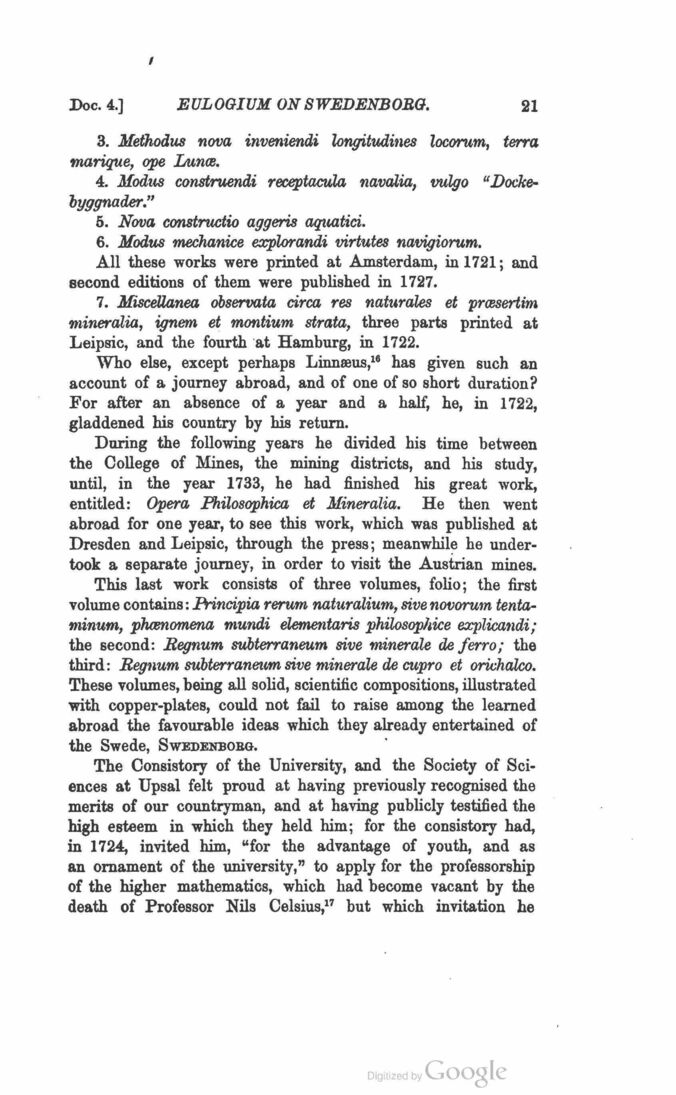
Full resolution (JPEG) - On this page / på denna sida - Sidor ...

<< prev. page << föreg. sida << >> nästa sida >> next page >>
Below is the raw OCR text
from the above scanned image.
Do you see an error? Proofread the page now!
Här nedan syns maskintolkade texten från faksimilbilden ovan.
Ser du något fel? Korrekturläs sidan nu!
This page has never been proofread. / Denna sida har aldrig korrekturlästs.
Doc. 4.) 21
EULOGIUM ON SWEDENBORG .
3. Methodus nova inveniendi longitudines locorum , terra
marique, ope Lune.
4. Modus construendi receptacula navalia, vulgo " Docke
byggnader."
5. Nova constructio aggeris aquatici.
6. Modus mechanice explorandi virtutes navigiorum .
All these works were printed at Amsterdam, in 1721 ; and
second editions of them were published in 1727.
7. Miscellanea observata circa res naturales et præsertim
mineralia, ignem et montium strata, three parts printed at
Leipsic, and the fourth at Hamburg, in 1722.
Who else, except perhaps Linnæus,16 has given such an
account of a journey abroad, and of one of so short duration ?
For after an absence of a year and a half, he, in 1722,
gladdened his country by his return.
During the following years he divided his time between
the College of Mines, the mining districts, and his study,
until, in the year 1733, he had finished his great work,
entitled: Opera Philosophica et Mineralia. He then went
abroad for one year, to see this work, which was published at
Dresden and Leipsic, through the press ; meanwhile he under
took a separate journey, in order to visit the Austrian mines.
This last work consists of three volumes, folio; the first
volume contains: Principia rerum naturalium , sive novorum tenta
minum , phænomena mundi elementaris philosophice explicandi;
the second: Regnum subterraneum sive minerale de ferro; the
third : Regnum subterraneum sive minerale de cupro et orichalco.
These volumes, being all solid, scientific compositions, illustrated
with copper -plates, could not fail to raise among the learned
abroad the favourable ideas which they already entertained of
the Swede, SWEDENBORG .
The Consistory of the University, and the Society of Sci
ences at Upsal felt proud at having previously recognised the
merits of our countryman, and at having publicly testified the
high esteem in which they held him ; for the consistory had,
in 1724, invited him , " for the advantage of youth, and as
an ornament of the university,” to apply for the professorship
of the higher mathematics, which had become vacant by the
death of Professor Nils Celsius,17 but which invitation he
1
<< prev. page << föreg. sida << >> nästa sida >> next page >>